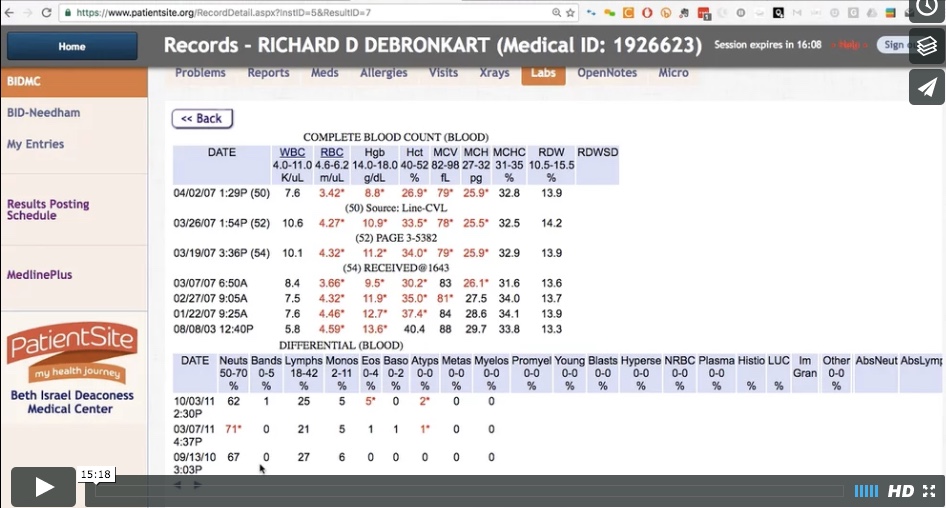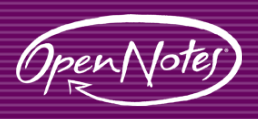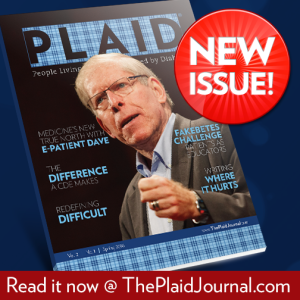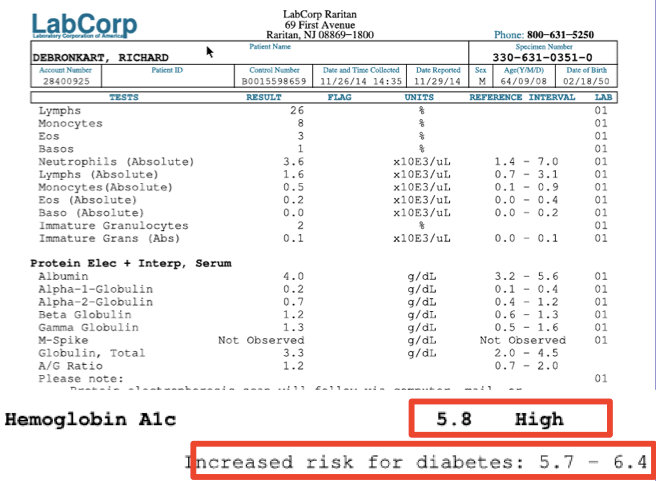
I’m a health data nudist: I don’t care who sees my “privates,” if doing so furthers the cause. And the time has come to push the issue, because my hospital is stonewalling, and that is just so not okay: as comments on my previous post show, this truly impedes care. And that must stop.
To end any mysteries about the much-touted PatientSite portal, in all its 1990s glory, I’ve decided to publish a complete 15-minute walk-through of everything in my chart, when I’m logged in PatientSite at Beth Israel Deaconess, the hospital that magnificently saved my life ten years ago.


 Well, things have changed, and change can be good … and in a delicious twist, the OpenNotes people got me to impersonate Kramer impersonating a doctor, in a new video mashup. Enjoy.
Well, things have changed, and change can be good … and in a delicious twist, the OpenNotes people got me to impersonate Kramer impersonating a doctor, in a new video mashup. Enjoy.

